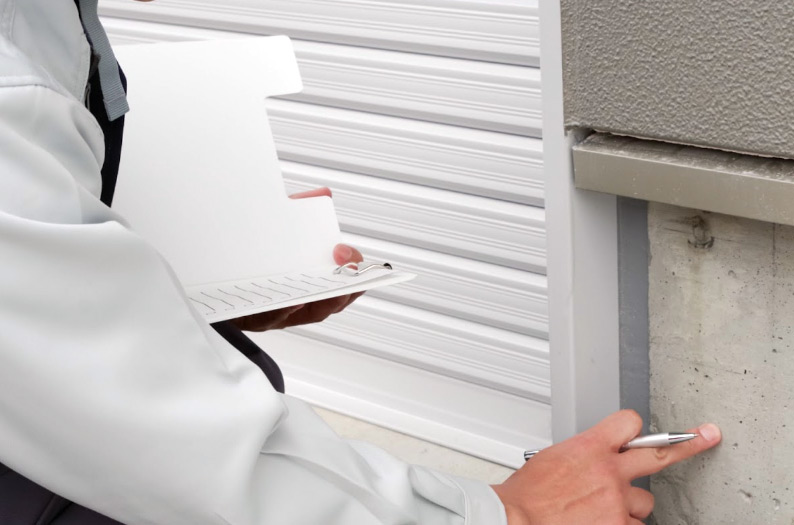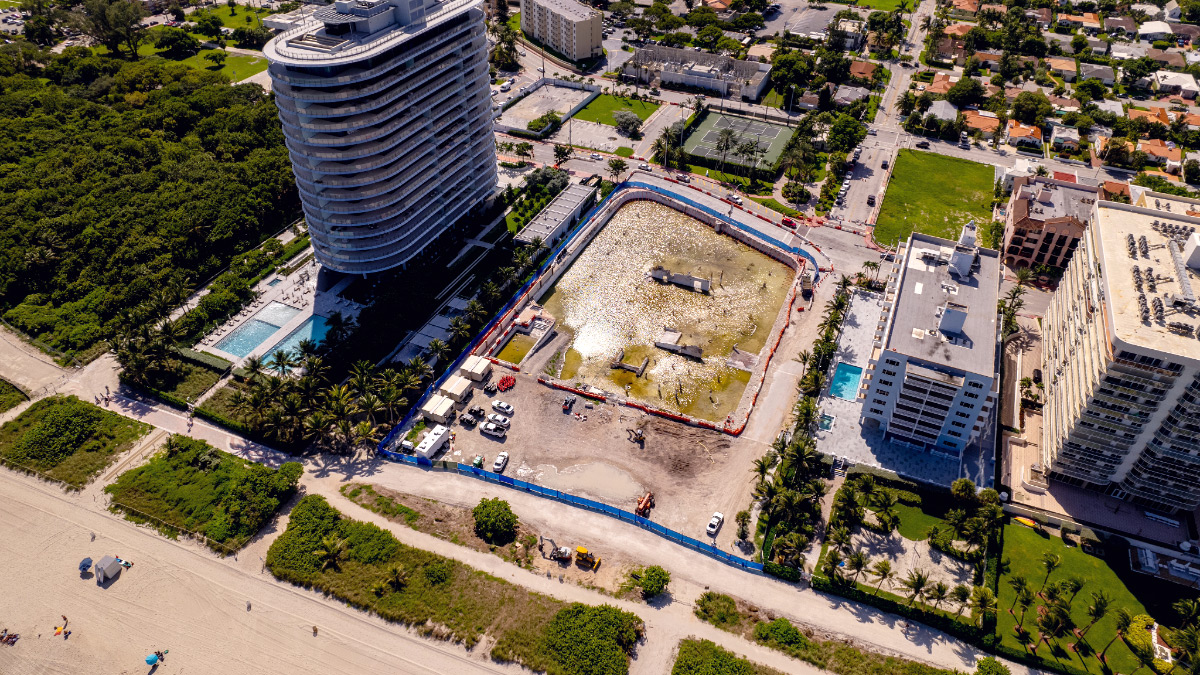
Senate Bill 154 emerged as a legislative response to address critical issues within Florida’s condominium and cooperative associations. This landmark bill refined two essential requirements: milestone inspections and structural integrity reserve studies. These provisions, aimed at enhancing building safety, bring significant changes to the way these associations operate. As an amendment to Florida Statute 553.899 (previously known as Senate bill SB 4-D), SB 154 mandates non-waivable reserves for structural purposes and ensures that inspections focus on a building’s structural integrity. We explore the implications, components, applicability, and due dates of SB 154, highlighting the need for proactive planning and adherence to the law to ensure the safety and structural soundness of condominiums and cooperatives in Florida.
July 2025 Update: New legislation (HB 913) is in effect for SIRS and Milestone Inspections. Read about current SIRS law changes and Milestone Inspections changes in our latest articles.
Understanding SB 154: The Motive and Origins
Senate Bill 154 is an amendment to 2022’s Florida Statute 553.899, which itself was a legislative response to the Surfside catastrophe where Champlain Tower South crumbled, claiming lives and causing untold and shocking devastation. In the aftermath, calls for intervention echoed across Florida, leading to the formation of various commissions and task forces. These groups came together to propose essential changes to the laws governing condominium and cooperative associations in the state. Last year, the Florida legislature adopted these recommendations, leading to the birth of SB 154.
This landmark bill introduced two crucial requirements: milestone inspections and structural integrity reserve studies. These provisions are set to revolutionize how condominiums and cooperatives maintain their buildings, ensuring structural soundness and safety. Further improvements were targeted for 553.899 as part of 2023’s legislative calendar, eventually becoming Senate Bill 154 (SB 154), which was passed into law in June, 2023.
The Significance of Structural Integrity Reserve Studies
Historically, condominiums and cooperatives have been familiar with the concept of reserves. These reserves, included in budgets by the board of directors, were allocated for deferred maintenance and projected capital expenditures. However, these reserves were waivable by unit owners or subject to funding reductions by unit owner votes. Furthermore, unit owners could authorize the use of reserve funds for other purposes.
SB 4-D introduced structural integrity reserve studies (SIRS, 718.112(2)(g)), which significantly differ from traditional reserves. These studies encompass a comprehensive assessment of a building’s structural components, necessitating non-waivable reserves. Funds accumulated in these categories can only be used for the intended structural purposes, even if unit owners vote otherwise. This distinction marks a significant shift in how associations manage their finances and prioritize the safety of their residents.
Milestone Inspections: Ensuring Structural Soundness
Milestone inspections, another critical aspect of 553.899 and SB 154, focus on periodic examinations of a building’s structural integrity and life safety. These inspections are divided into two phases: a visual inspection and, if necessary, a more intensive phase two examination.
The visual inspection, performed by licensed architects or engineers, assesses a building’s structural soundness. If the building meets the required standards, the inspection concludes at phase one. Phase two comes into play when more severe issues are detected, providing a detailed understanding of the building’s structural condition and necessary maintenance or repairs.
Components Evaluated in Milestone Inspections
Milestone inspections are primarily concerned with the critical structural elements of a building. This includes:
- Foundation: Ensuring the stability of the building’s base.
- Load-bearing walls: Assessing the integrity of walls responsible for supporting the structure’s weight.
- Shear walls: Evaluating walls designed to withstand lateral forces, crucial for stability.
- Roof deck: Ensuring the safety and integrity of the roof structure.
- Balconies: Examining balconies for structural soundness.
Importantly, milestone inspections focus on structural integrity and safety, avoiding cosmetic issues like cracked stucco or paint.
Applicability and Due Dates
553.899 and SB 154 impacts condominium and cooperative buildings with three stories or more. Key due dates include:
- Mandatory Structural Inspections: Buildings exceeding three stories must commence milestone inspections by December 31, 2024. An unintended gap exists for buildings 30 years or older as of July 31, 2022, which must also complete inspections by the same date. Buildings within three miles of the coastline may have unique requirements tied to their 25th year from the certificate of occupancy.
- Structural Integrity Reserve Studies: Buildings with three stories or more must complete these studies by December 31, 2024. These studies will specify required reserves for various building components, with no option for unit owner waivers. These funds must be included in budgets for the 2025 fiscal year.
- An association obligated to conduct a milestone inspection by December 31, 2026, has the option to carry out the structural integrity reserve study at the same time as the milestone inspection. However, it’s crucial to note that the structural integrity reserve study must not be finished later than December 31, 2026, under any circumstances.
Building Height and Reserve Requirements
According to the legislation, these studies and inspections are required for buildings that are three stories or more in height. However, it doesn’t specify whether subterranean or below-ground levels are included in this count. This lack of clarity in the legislation leaves room for interpretation, potentially requiring associations to consider all habitable stories, regardless of their position relative to the ground level.
Governance Documents and Cost Allocation
While the statute may require certain studies, the governing documents can provide guidelines on who should fund these costs. It’s noted that, unless the governing documents specify otherwise, the statutes generally consider these costs as common expenses of the building. This means that even residents in buildings that are less than three stories tall may be required to contribute to these costs.
Reserve Pooling and Compliance
Another important topic revolves around reserve pooling, where associations combine reserve funds for various purposes. The legislation allows for pooled reserve accounting, but there’s a caveat concerning structural integrity reserve funds. These funds are intended solely for their designated purposes, and using them for anything else could be problematic, especially if reserve pooling is in place.
Preparing for the Future
The implications of SB 154 are significant, particularly for associations that historically lacked adequate reserves or waived them altogether. Associations must now navigate the challenge of funding structural integrity reserves for critical building components. This transitional period between now and the 2025 fiscal year is crucial for proactive decision-making.
Building associations should consider the age and condition of their structures, assess their financial positions, and plan accordingly. This may entail significant assessments for unit owners or exploring alternative funding solutions. The key is to prepare for this new era of condominium governance and prioritize the safety and structural integrity of their buildings.
Closing Thoughts
Florida statute 553.899, SIRS statute, and subsequent Senate Bill 154 represents a pivotal moment in the history of Florida’s condominium and cooperative associations. As we reflect on the tragedy behind this legislation and the imperative need for structural integrity reserve studies and milestone inspections, one thing becomes evident: the commitment to safety and the well-being of residents and their investments is a top priority for Florida and its residents. Now is the time for action. Building associations must proactively assess their structures, financial positions, and compliance with the new law. It’s a journey that requires strategic planning and financial diligence. By quickly adapting to and implementing the requirements of this updated legislation, we collectively pave the way for safer, more resilient communities in the Sunshine State, where every resident can enjoy peace of mind and trust in the structural soundness of their homes.
We encourage you to read more of our coverage of SB 154 and its impact on Milestone Inspections and SIRS reports in our expansive coverage and articles on SB 154. If you have questions about how SB 154 applies to your building, we encourage you to reach out to our team at Building Mavens. As South Florida’s premiere Milestone Inspections, SIRS, and Engineering Consulting firm, we understand the legislation’s nuances and deadlines, affording us the knowledge to help provide you with the inspections and guidance necessary to help you move forward with confidence and clarity. Contact our team today and let us seize this opportunity to build a safer and more secure future together.
About the Author

With a comprehensive background spanning public and private projects, Scott’s proficiency encompasses structural engineering design, construction oversight, and forensic analysis. His role involves investigating structural failures, construction defects, and code compliance to ensure project integrity while upholding safety standards and building codes. Beyond his investigative prowess, Scott is a skilled design engineer, contributing to diverse architectural facets including building envelope systems and designs for various materials. His extensive portfolio includes projects ranging from residential designs to commercial structures like warehouses and piers. Across all phases of project development, from conception to inspection, Scott’s dedication to innovative and compliant engineering solutions shines through.
Contact me for more information: info@buildingmavens.com







